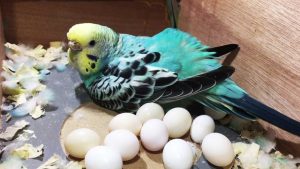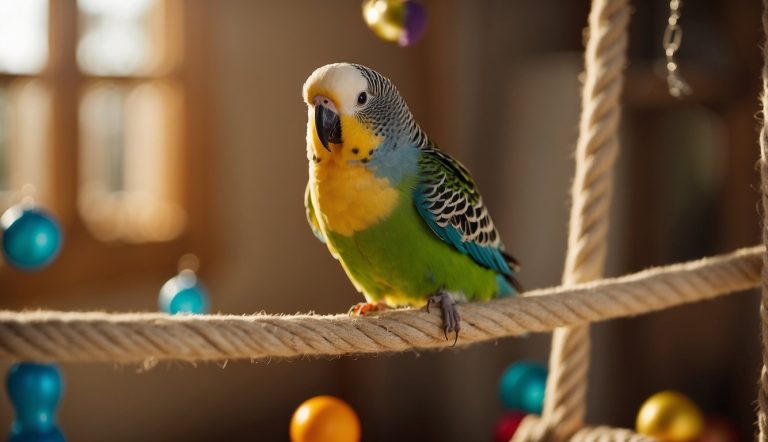Why Is My Parakeet Screaming? Understanding and Addressing the Causes
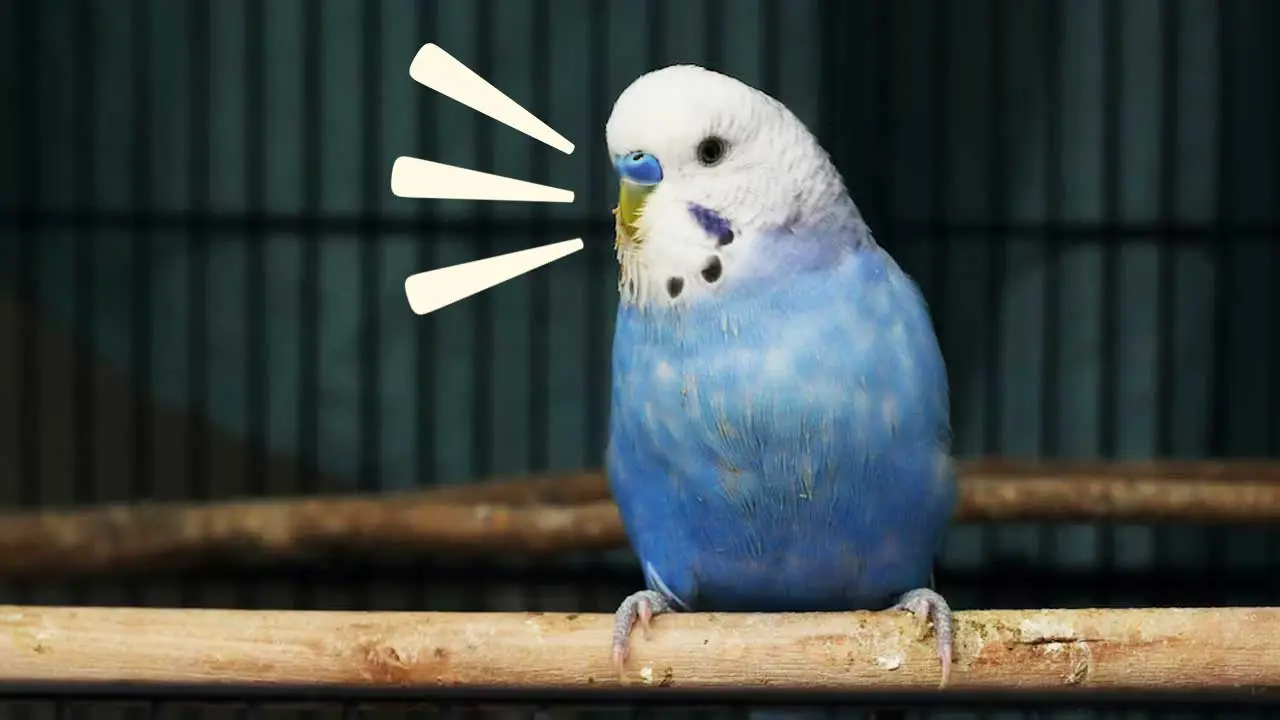
As a parakeet owner, I often find myself wondering why my parakeet is screaming. Parakeets are social creatures with a variety of vocalizations that can communicate their emotions, needs, and sometimes just to play around. Understandably, the high-pitched screaming from our feathered companions can be concerning and disruptive in a household.
Quick Summary
To understand why a parakeet might be screaming, it’s essential to become familiar with their emotions and behaviors. These birds are sensitive to their surroundings, and various factors such as environmental changes, their social needs, or even an illness might contribute to their screaming episodes. As a responsible parakeet owner, it’s crucial to identify the underlying reasons behind the screaming and find ways to reduce it effectively while ensuring their overall well-being.
Key Takeaways
- Parakeet screaming can be influenced by their emotions, needs, and environment
- Effectively addressing the cause of screaming involves understanding their behavior
- Ensuring a satisfying social life and comfortable surroundings can help reduce parakeet screaming
Table of Contents
Understanding Parakeet Screams
Defining Screaming
In my experience with parakeets, screaming can be defined as a loud, long, and often repetitive vocalization. As a bird enthusiast, I’ve noticed that these screams can vary in pitch and intensity, depending on the individual parakeet and the situation. Screaming is a form of communication for parakeets, just like chirping, chattering, or squawking.
Normal Vs Abnormal Vocalizations
As I’ve observed, it’s essential to distinguish between normal and abnormal vocalizations in parakeets. Normal vocalizations are a part of their daily activities and include sounds like:
- Chirping: Short, high-pitched sounds that can be a sign of contentment or greeting.
- Chatter: Rapid, continuous, and varied vocalizations that parakeets use when they are excited or engaging with other birds.
- Squawking: Harsh, low-pitched sounds that can signal annoyance or a warning to other parakeets.
On the other hand, abnormal vocalizations, such as excessive screaming, can be indicative of a problem. If my parakeet is screaming more than usual, I consider factors such as stress, fear, boredom, or illness. Identifying the root cause of the screaming is crucial in addressing the issue and ensuring the well-being of my parakeet.
Some common reasons why my parakeet may scream include:
- Seeking attention: Parakeets are social creatures and may scream if they feel lonely or neglected.
- Fear or stress: Sudden changes in their environment, such as loud noises or unfamiliar objects, can cause parakeets to scream out of fear or stress.
- Boredom: A lack of mental stimulation or physical activity can lead to excessive screaming as an outlet for their energy.
To help reduce my parakeet’s screaming, I implement some strategies such as:
- Offering companionship or more interaction with me or other parakeets.
- Providing a comfortable and stable environment to minimize stress.
- Ensuring they have access to toys, puzzles, and engaging activities to keep them mentally and physically active.
Understanding parakeet screams allows me to better interpret and respond to my parakeet’s needs, ultimately ensuring their happiness and well-being.
Reasons Behind Parakeet Screaming
Seeking Attention
One of the main reasons my parakeet screams is to seek attention. These intelligent birds are social creatures and may scream when they want to interact with me, their owner, or other members of the family. I’ve noticed that my parakeet often screams when it wants to be heard or when it wants to join in on the conversation. To address this, I try to give my parakeet regular social interaction, like whistling or talking to it, to satisfy its need for attention.
Experiencing Fear or Distress
Parakeets may also scream when they are scared or stressed. This can happen due to sudden loud noises, unfamiliar surroundings, or the presence of a perceived threat. If I notice that my parakeet seems scared, I do my best to identify and eliminate potential stressors. I also reassure my parakeet by talking to it in a calm and soothing tone.
Feeling Boredom
Boredom can be another reason behind a parakeet’s screaming. My parakeet might be screaming because it’s lacking stimulation in its environment. To alleviate this, I enrich my parakeet’s environment by providing toys, perches, and other engaging items for it to interact with. Ensuring that my parakeet stays active and challenged can help reduce screaming caused by boredom.
Expressing Hunger or Thirst
Sometimes, my parakeet might be screaming simply because it’s hungry or thirsty. It’s crucial to provide a balanced diet and fresh water for my parakeet to stay healthy and happy. I make sure to routinely check the food and water dishes, replenishing them as needed. If my parakeet is still screaming after eating and drinking, I can rule out hunger or thirst as the cause.
Suffering from Pain or Illness
Lastly, my parakeet could be screaming due to pain or illness. Persistent screaming that doesn’t seem related to any other cause may indicate a health issue. If I suspect that my parakeet is sick or in pain, I consult with an avian veterinarian for a proper diagnosis and treatment plan. Regular checkups can help preemptively address any potential health concerns before they progress.
By addressing each of these possible reasons, I can better understand why my parakeet may be screaming and take appropriate steps to ensure its wellbeing. Keeping my parakeet’s environment stimulating, providing proper care, and paying attention to its signals can help create a more peaceful life for both me and my parakeet.
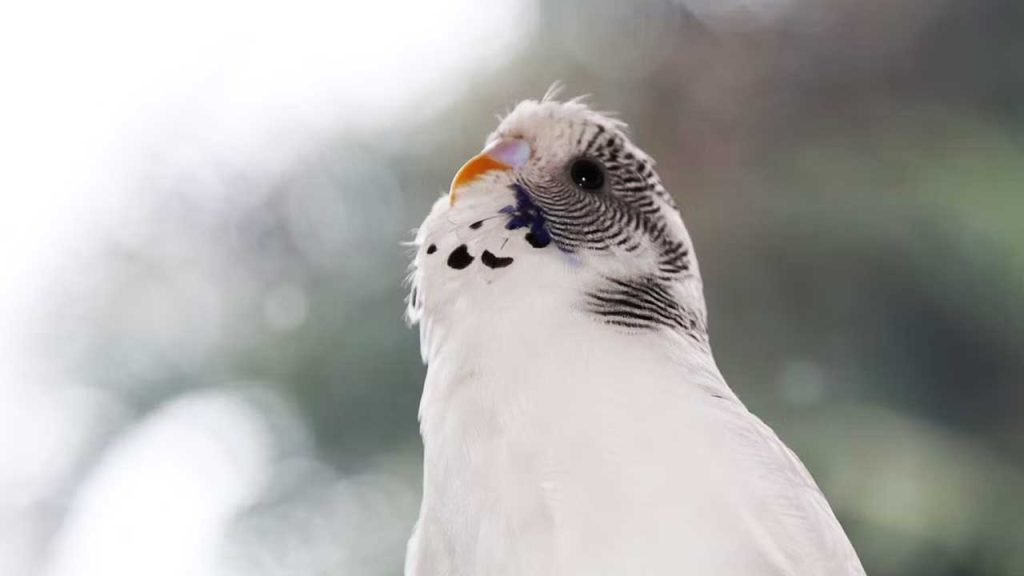
Identifying Parakeet Emotions and Behaviors
Positive and Negative Cues
In order to understand why my parakeet is screaming, it’s essential to differentiate between positive and negative cues. When my parakeet is happy, excited, and content, I usually observe them:
- Singing: A melodic and pleasing sound, indicating happiness
- Beak grinding: A sign of contentment and relaxation
On the other hand, negative behaviors can be related to feeling threatened, an illness, or just overall discomfort. Some examples are:
- Biting: A defensive reaction, usually when my parakeet feels threatened or scared
- Wing flapping: Can indicate irritation or the need to release excess energy
Body Language
Aside from vocalizations like singing and screaming, I also pay attention to my parakeet’s body language. Here are some cues:
- Puffed-up feathers: When my parakeet is cold or feeling unwell
- Pinched or sleek feathers: A sign of alertness or unease
By observing these behaviors, I can gather valuable information about my parakeet’s emotional state and address it accordingly.
Vocal Patterns
Finally, focusing on vocal patterns helps me identify the reasons behind my parakeet’s screams. Here’s a summary of common sounds and their meanings:
- Chirping: Usually indicates happiness or contentment
- Screaming: Can range from seeking attention, feeling scared, or expressing discomfort
In conclusion, by paying close attention to my parakeet’s emotions and behaviors, I can better understand and address their needs, ultimately improving their overall well-being.
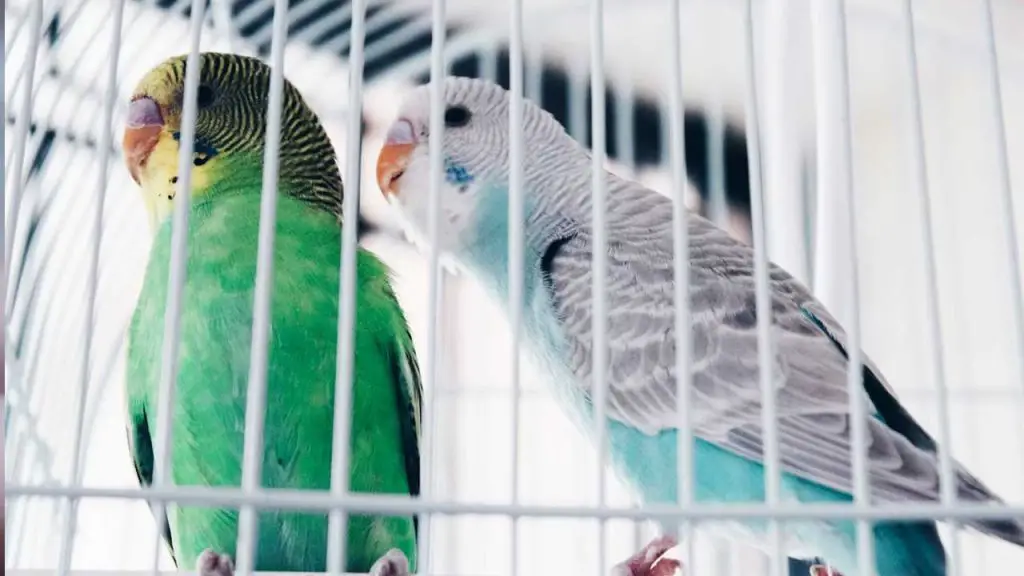
How to Reduce Parakeet Screaming
Creating a Comfortable Environment
To help my parakeet feel at ease and reduce screaming, I ensure its cage is located in a safe, calm environment. I place the cage away from direct sunlight and drafts. Additionally, I keep the temperature regulated and provide clean water daily. I also include perches in the cage that are of varying sizes, helping my parakeet exercise its feet and maintain good health.
Providing Mental Stimulation
To keep my parakeet engaged and minimize screaming due to boredom, I provide a variety of toys, such as bells, mirrors, and puzzle toys. These toys promote mental stimulation and exercise for the bird. I regularly rotate these toys, introducing new ones to keep the environment fresh and interesting.
Implementing Positive Reinforcement
I’ve found that using positive reinforcement works wonders in reducing my parakeet’s screaming. Whenever it makes a pleasant sound or whistle, I reward it with a small treat, praising the bird for its behavior. This encourages my parakeet to vocalize in more acceptable ways, rather than resorting to screaming.
Avoiding Negative Responses
I’ve learned to avoid negative responses to my parakeet’s screaming. When it screams, I intentionally ignore the behavior instead of reacting with frustration or annoyance. By doing this, my parakeet learns that screaming does not yield attention or other rewards. Over time, this helps minimize the frequency of the undesirable behavior.
By focusing on creating a comfortable environment, providing mental stimulation, implementing positive reinforcement, and avoiding negative responses, I’ve been able to reduce my parakeet’s screaming significantly while maintaining a strong bond and companionship with my feathered friend.
Social Needs of Parakeets
Parakeets as Social Animals
As a parakeet owner, I’ve come to learn that these birds are highly social animals. In the wild, they live in large flocks, constantly communicating with each other. Their complex vocalizations play a key role in maintaining social bonds, reinforcing flock cohesion, and expressing their emotions. As a result, parakeets instinctively have a strong need for companionship, both with humans and other birds.
Interactions with Humans and Other Birds
To satisfy my parakeet’s social needs, I’ve found that frequent interactions with humans or other birds are essential. I dedicate time each day to talk, play, and interact with my parakeet. This helps mimic the socialization that would naturally occur in a wild flock.
Bird bonding: Building a strong bond with your parakeet not only strengthens your relationship but can also help reduce their excessive screaming. When your parakeet feels loved and secure, they may use other, less disruptive means of communication.
Bird companions: Introducing another parakeet or compatible companion bird, like a cockatiel, to your home can help prevent loneliness and reduce excessive noise caused by isolation. Just be sure to monitor their interactions and provide enough space for both birds to comfortably coexist.
Understanding Flocks and Noise
Understanding the social nature of parakeets and replicating that environment is crucial when addressing their noisy behavior. Screaming can be a sign that my parakeet is seeking attention or feeling lonely, so providing mental and social stimulation is key.
Flock simulation: By simulating their natural flock environment with a small group of birds, it’s likely that my parakeet will engage in vocalizations that are typical for their species and feel a greater sense of belonging.
Enrichment activities: To balance my parakeet’s need for mental stimulation, I provide a range of enrichment activities, such as toys, puzzle feeders, and perches in their living area. This not only keeps them entertained but may also reduce excessive noise due to boredom or frustration.
In my experience, understanding the social needs of parakeets and providing a stimulating environment is key to managing excessive screaming and ensuring a happy, well-adjusted pet bird.
Frequently Asked Questions
Why does my parakeet scream when I leave the room?
Parakeets are social creatures and often scream when their owner leaves the room to call for attention or express anxiety. To reduce this behavior, I can spend more time interacting with my parakeet and providing enrichment activities to keep it engaged while I am away. I may also consider getting another parakeet to offer companionship and alleviate loneliness.
What could cause my budgie to screech and flap its wings?
Budgies may screech and flap their wings due to several reasons, such as excitement, fear, or the need to exercise. When I notice this behavior, I should carefully observe my budgie’s environment for any potential stressors or disturbances. Additionally, I can ensure my budgie has enough space to stretch and move freely in its cage.
Is it normal for parakeets to squawk at each other?
Yes, it is normal for parakeets to squawk at each other as it is their way of communicating. They may be discussing food, expressing dominance, or simply engaging in social interactions. If I notice that the squawks are becoming excessively loud or aggressive, I should monitor their behavior and intervene if necessary to ensure harmony between them.
What does a budgie distress call sound like?
A budgie distress call typically sounds like a series of loud, high-pitched, and repetitive chirps. This call is used to signal danger or fear to other birds. When I hear this call, I should check on my budgie and its environment to ensure there are no threats or stressors causing distress.
Why do parakeets scream in the morning?
Parakeets often scream in the morning as a way of greeting the day and communicating with other birds. This is a natural behavior often referred to as “morning chorus.” To help manage this noise, I can gradually wake my parakeets by exposing them to low light before fully opening the curtains or turning on the lights.
How can I help my parakeet stop chirping so much?
To help my parakeet stop chirping excessively, I can address the underlying cause of the behavior, such as boredom, loneliness, or overstimulation. Providing adequate social interaction, a balanced diet, and engaging toys can keep my parakeet entertained and content. Additionally, maintaining a consistent daily routine and creating a calm environment can minimize stress and excessive chirping.


